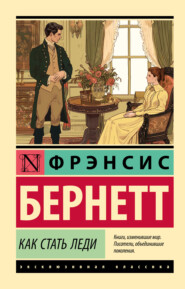По всем вопросам обращайтесь на: info@litportal.ru
(©) 2003-2024.
✖
Theo: A Sprightly Love Story
Год написания книги
2017
Настройки чтения
Размер шрифта
Высота строк
Поля
"No! no!" she cried out. "No! no! only forgive him, and let me go. Only forgive him, and let him begin again. He must love you – he does love you. It was my fault – not his. Oh – "
Priscilla stopped her, smiling, in a half-sad way.
"Hush!" she said, quietly. "You don't understand me. The fault was only the fault of the old blunder. Don't try to throw your happiness away, Theodora. You were not made to miss it. I have not been blind all these months. How could I be? I only wanted to wait and make sure that this was not a blunder, too. I have known it from the first. Theo, I have done now – the old tangle is unravelled. Go to him, Theo, he wants you."
The next instant the door closed upon Priscilla, as she went out, and Theodora North understood clearly what she had before never dared to dream of.
There was one brief, breathless pause, and then Denis Oglethorpe held out his arms.
"My darling," he said. "Mine, my own."
She slipped down by his side, beautiful, tremulous, with glowing cheeks and tear-wet eyes. She remembered Priscilla Gower then.
"Oh, my love!" she cried. "She is better than I am, braver and more noble; but she can never love you better, or be more faithful and true than I will be. Only try me; only try me, my darling."
Three months subsequently, when Pamela and Priscilla had settled down again to the routine of their old lives, there was a quiet wedding celebrated at Paris – a quiet wedding, though it was under Lady Throckmorton's patronage.
In their tender remembrance of Priscilla Gower, it was made a quiet wedding – so quiet, indeed, that the people who made the young English beauty's romance a topic of conversation and nine days' wonder, scarcely knew it had ended.
And in Broome street, Priscilla Gower read the announcement in the paper, with only the ghost of a faint pang.
"I suppose I am naturally a cold woman," she wrote to Pamela North, with whom she sustained a faithful correspondence. "I will acknowledge, at least, to a certain lack of enthusiasm. I can be faithful, but I cannot be impassioned. It is impossible for me to suffer as your pretty Theo could, as it is equally impossible for me to love as she did. I have lost something, of course, but I have not lost all."
Between these two women there arose a friendship which was never dissolved. Perhaps the one thing they had in common, drew them toward each other; at any rate, they were faithful; and even when, three years later, Priscilla Gower married a man who loved her, and having married him, was a calmly happy woman, they were faithful to each other still.
THE END

















